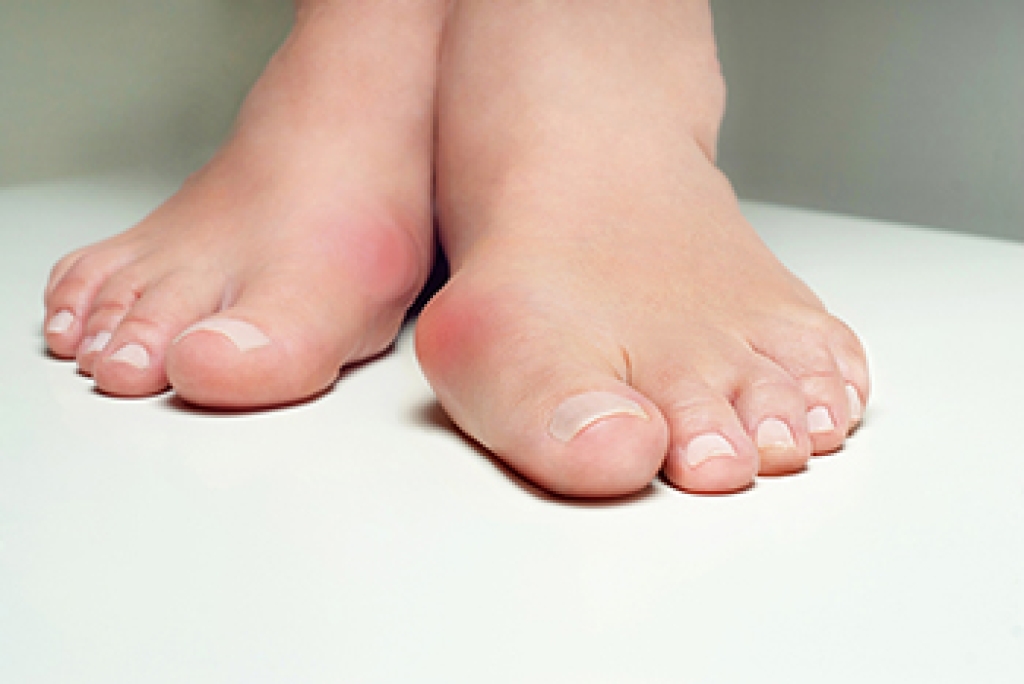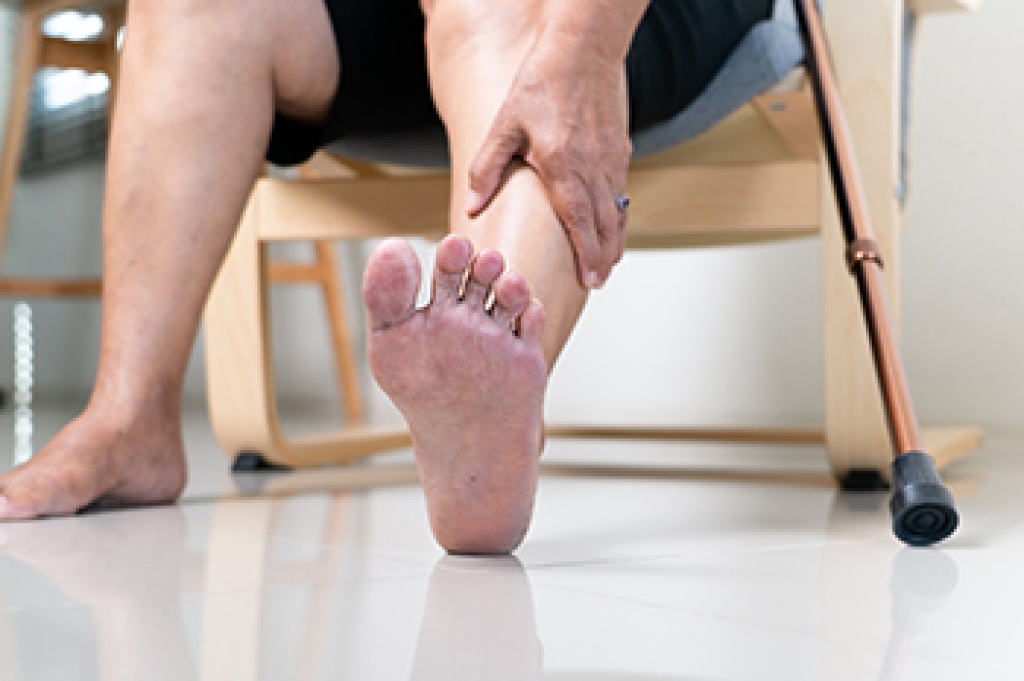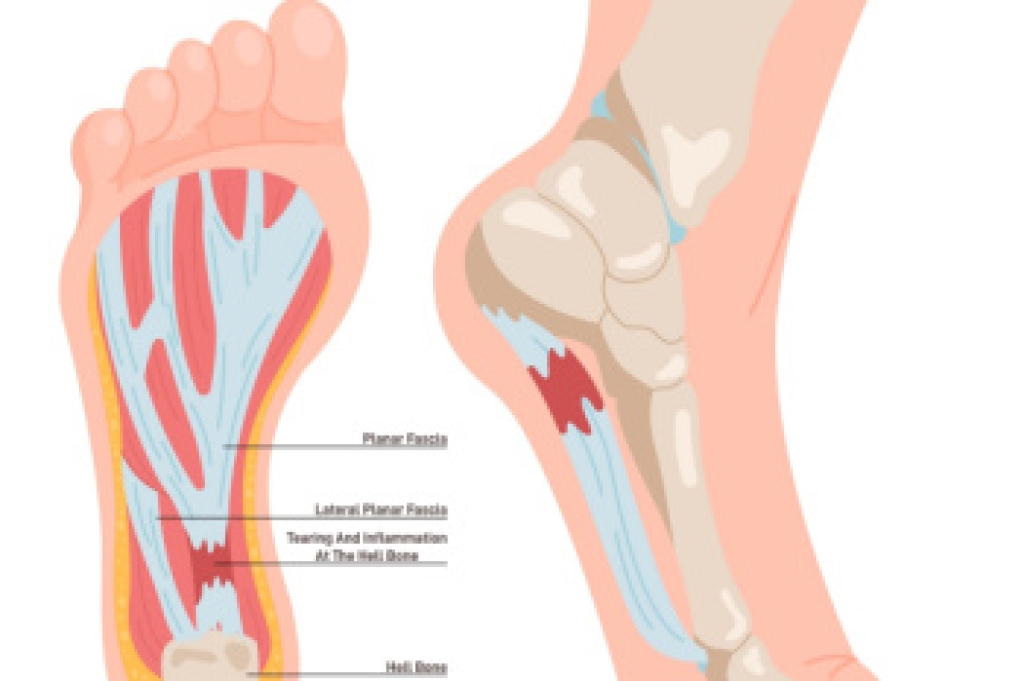Blog
Understanding Foot and Ankle Snowboarding Injuries

Foot and ankle injuries in snowboarding often occur because both feet are attached to a single board, reducing independent movement and increasing stress during falls or sharp turns. Non-releasable bindings can lock the feet in place, leading to sprains, fractures, and tendon strains. Boots and hybrid boots that do not fit well may add pressure, reduce stability, or fail to protect the ankles during landings. These factors can place significant force on the lower limbs, especially on uneven terrain or during high-speed maneuvers. A podiatrist can evaluate injuries, provide proper treatment, and recommend supportive gear that improves safety. If you have foot pain after snowboarding, it is suggested that you seek professional care from a podiatrist who can provide effective relief and treatment solutions.
Sports related foot and ankle injuries require proper treatment before players can go back to their regular routines. For more information, contact Philip C. Caswell, DPM of Family Foot & Ankle Care. Our doctor can provide the care you need to keep you pain-free and on your feet.
Sports Related Foot and Ankle Injuries
Foot and ankle injuries are a common occurrence when it comes to athletes of any sport. While many athletes dismiss the initial aches and pains, the truth is that ignoring potential foot and ankle injuries can lead to serious problems. As athletes continue to place pressure and strain the area further, a mild injury can turn into something as serious as a rupture and may lead to a permanent disability. There are many factors that contribute to sports related foot and ankle injuries, which include failure to warm up properly, not providing support or wearing bad footwear. Common injuries and conditions athletes face, including:
- Plantar Fasciitis
- Achilles Tendinitis
- Achilles Tendon Rupture
- Ankle Sprains
Sports related injuries are commonly treated using the RICE method. This includes rest, applying ice to the injured area, compression and elevating the ankle. More serious sprains and injuries may require surgery, which could include arthroscopic and reconstructive surgery. Rehabilitation and therapy may also be required in order to get any recovering athlete to become fully functional again. Any unusual aches and pains an athlete sustains must be evaluated by a licensed, reputable medical professional.
If you have any questions please contact our office located in Sparta, NJ . We offer the newest diagnostic and treatment technologies for all your foot and ankle needs.
Symptoms and Treatment of Bunions

A bunion develops when the big toe gradually shifts toward the smaller toes, causing a noticeable bump on the side of the foot and irritation around the big toe joint. This change, known medically as hallux valgus, often leads to soreness in the toes, redness around the joint, and areas of thickened skin under the ball of the foot. Some people experience numbness if nearby nerves become irritated, and stiffness in the big toe can make walking uncomfortable. Shoes that lack adequate support or have narrow designs often increase pressure on the joint. A podiatrist can evaluate the alignment of the toes, check joint movement, and recommend a treatment plan. Supportive footwear with a wide toe box, custom orthotics, and padding can ease pressure on the joint, while surgery corrects the underlying misalignment when pain is severe. If you have a painful bunion, it is suggested that you make an appointment with a podiatrist for a diagnosis and treatment.
If you are suffering from bunions, contact Philip C. Caswell, DPM of Family Foot & Ankle Care. Our doctor can provide the care you need to keep you pain-free and on your feet.
What Is a Bunion?
A bunion is formed of swollen tissue or an enlargement of boney growth, usually located at the base joint of the toe that connects to the foot. The swelling occurs due to the bones in the big toe shifting inward, which impacts the other toes of the foot. This causes the area around the base of the big toe to become inflamed and painful.
Why Do Bunions Form?
Genetics – Susceptibility to bunions are often hereditary
Stress on the feet – Poorly fitted and uncomfortable footwear that places stress on feet, such as heels, can worsen existing bunions
How Are Bunions Diagnosed?
Doctors often perform two tests – blood tests and x-rays – when trying to diagnose bunions, especially in the early stages of development. Blood tests help determine if the foot pain is being caused by something else, such as arthritis, while x-rays provide a clear picture of your bone structure to your doctor.
How Are Bunions Treated?
- Refrain from wearing heels or similar shoes that cause discomfort
- Select wider shoes that can provide more comfort and reduce pain
- Anti-inflammatory and pain management drugs
- Orthotics or foot inserts
- Surgery
If you have any questions, please feel free to contact our office located in Sparta, NJ . We offer the newest diagnostic and treatment technologies for all your foot care needs.
Foot Care Tips for Senior Citizens

Elderly foot care is important for maintaining comfort, mobility, and overall well-being. Keeping feet dry and clean helps prevent infections and skin problems. Maintaining nail health by trimming nails straight across reduces the risk of ingrown nails and discomfort. Wearing the right shoes provides support, prevents falls, and protects sensitive skin. Good circulation is encouraged through gentle movement and elevating the feet when resting. Additionally, staying hydrated helps keep the skin soft and healthy. A podiatrist can identify concerns early, provide specialized treatments, and offer guidance that supports long-term foot health. If you or a loved one needs expert foot care, it is suggested that you schedule a podiatric appointment today to maintain comfort, safety, and independence.
If you need your feet checked, contact Philip C. Caswell, DPM of Family Foot & Ankle Care. Our doctor will attend to all of your foot and ankle needs and provide you with quality treatment.
Geriatrics and Podiatry
When people age, some common issues that may occur are bone density loss, dry skin, poor circulation, and rough brittle nails. These issues may also affect your foot health if the necessary steps are not taken to alleviate the problems.
It is important to take care of your feet because feet that are injured or diseased can affect your overall health. Having painful feet hinders your ability to do daily activities or may decrease your willingness to do the things that you need to do.
Visiting Your Geriatrician
As we age, health problems become more likely, so it is essential to visit your doctor for check-ups to ensure that you are doing the best you can to take care of your health. It is recommended to check your feet frequently for any possible cuts, bruises, swelling, corns or any other irregularities.
Taking Care of Elderly Feet
Cracked or dry feet can be treated by applying moisturizer often. It is also important not to wear old socks because the older the sock is, the higher the possibility there will be that there is bacteria there. Wear fresh socks and make sure they fit properly.
Proper foot health means that you can have a more active lifestyle and you will not be bogged down by pain. Foot health also leads to good circulation, which is paramount for overall health.
If you have any questions, please feel free to contact our office located in Sparta, NJ . We offer the newest diagnostic and treatment technologies for all your foot care needs.
Risk Factors for Plantar Fasciitis

Plantar fasciitis is a common condition characterized by inflammation of the thick band of tissue connecting the heel to the toes, causing heel pain and stiffness. Several risk factors increase the likelihood of developing this condition, including age, long distance running, abnormalities in foot biomechanics, obesity, and prolonged standing throughout the day. Individuals with these factors may experience sharp pain during the first steps in the morning or after periods of rest. A podiatrist can help by diagnosing the condition, providing custom orthotics, recommending stretching exercises, and suggesting treatments to reduce inflammation and relieve pain. If you have persistent heel discomfort or stiffness, it is suggested that you promptly schedule an appointment with a podiatrist who can provide an accurate diagnosis and offer effective treatment solutions.
Plantar fasciitis can be very painful and inconvenient. If you are experiencing heel pain or symptoms of plantar fasciitis, contact Philip C. Caswell, DPM from Family Foot & Ankle Care. Our doctor can provide the care you need to keep you pain-free and on your feet.
What Is Plantar Fasciitis?
Plantar fasciitis is the inflammation of the thick band of tissue that runs along the bottom of your foot, known as the plantar fascia, and causes mild to severe heel pain.
What Causes Plantar Fasciitis?
- Excessive running
- Non-supportive shoes
- Overpronation
- Repeated stretching and tearing of the plantar fascia
How Can It Be Treated?
- Conservative measures – anti-inflammatories, ice packs, stretching exercises, physical therapy, orthotic devices
- Shockwave therapy – sound waves are sent to the affected area to facilitate healing and are usually used for chronic cases of plantar fasciitis
- Surgery – usually only used as a last resort when all else fails. The plantar fascia can be surgically detached from the heel
While very treatable, plantar fasciitis is definitely not something that should be ignored. Especially in severe cases, speaking to your doctor right away is highly recommended to avoid complications and severe heel pain. Your podiatrist can work with you to provide the appropriate treatment options tailored to your condition.
If you have any questions, please feel free to contact our office located in Sparta, NJ . We offer the newest diagnostic and treatment technologies for all your foot care needs.

